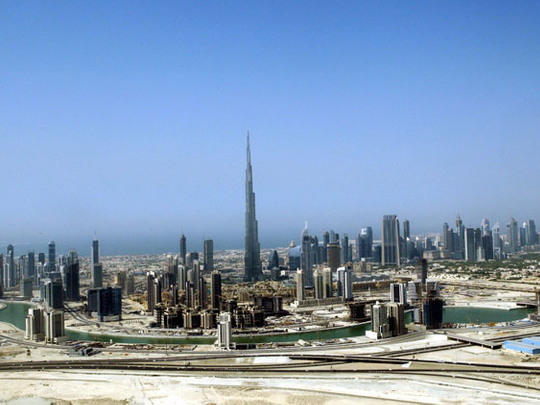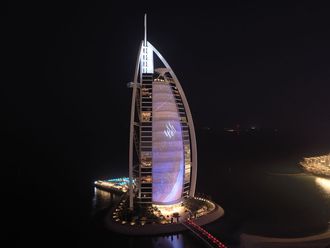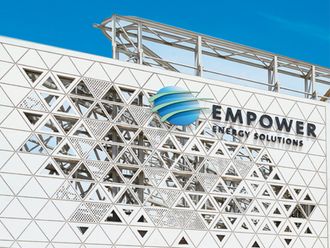
Abu Dhabi: Short-term demand remained subdued in Abu Dhabi’s real estate sector owing to increased supply as major projects reached completion this year. Meanwhile, Dubai’s real estate market was back on an upward trend in 2012, said real estate experts.
According to a Jones Lang LaSalle (JLL) report, there are grounds for cautious optimism for the prospects of the Dubai real estate market in 2013, with most sectors of the industry ending the year in the early upturn stage of their cycle.
“While the real estate sector has lagged the overall economy during 2012, there are now signs that confidence is returning among both investors and developers, particularly in the last six months, with a number of major new projects announced,” JLL’s report said.
The report showed that investors remain confident, with the city emerging as the clear favourite among major real estate investors across the Mena region.
“There are indications that some of the lessons of the last real estate crisis have been learned. The most important of these is the need to adopt a long-term and coordinated approach, rather than developing too much real estate too quickly,” JLL said.
The report stressed that most sectors are likely to continue to experience some growth in prices and rentals in 2013.
Alan Robertson, CEO of JLL Mena, said: “In 2012, the UAE real estate market has been a tale of two very different cities. We have seen cautious optimism returning to the Dubai market. The recovery has, however, been very selective and focused on only the best quality projects, locations and developers.”
Robertson added: “While 2013 is likely to see a broader based recovery, the strongest performance will remain concentrated on those projects for which there is confirmed investment and tenant demand. The significant levels of vacancy and further new supply will limit the extent to which poorer quality projects and those in secondary locations will benefit.”
Ziad Al Cha’ar, managing director, Damac Properties, said that 2012 saw the Dubai real estate market get back on track, with opportunities abounding in 2013, supported by more considered and stable growth plans.
“Dubai’s property market will grow at a steadier and more stable pace over the next year, providing solid investment opportunities for the savvy investor,” said Al Cha’ar.
He added that independent reports have put the growth in prices of real estate in Dubai through 2012 at anywhere from 7-19 per cent, depending on location and the quality of the project.
“Growth is sustainable in the near future if you know where to look. For example, 2012 has delivered on our predictions at the start of the year — prices in the Dubai market steadily grew with each quarter outperforming the last. In 2013, buyers will definitely be able to benefit from this capital growth, but will need to be very savvy about where they invest and in which projects.”
Abu Dhabi market
With regard to Abu Dhabi, the JLL report said that the capital city has become more cost-competitive. Its urban infrastructure and quality of life continue to improve through better quality accommodation and ongoing improvements to social infrastructure and additional moves to channel demand to the Abu Dhabi emirate in line with its 2030 Vision.
“Demand remains suppressed in the short term. While supply continues to increase as major projects reach completion, vacancy rates are set to rise further and consequently rental values have continued to decline throughout 2012,” JLL said.
“Abu Dhabi lags further behind in its recovery. The government of Abu Dhabi remains committed to a broad range of capital projects and infrastructure developments, but demand remains weak pending the return of major government capital spending whilst supply continues to drive the emirate’s vacancy levels,” said Robertson.
He added: “Until we see more take-up of available space, rents will continue to suffer. However, as with Dubai, there are examples of where good quality space that is meeting expectations, has attracted quality occupiers and where rents have stabilised.”
The JLL report stressed that the government of Abu Dhabi is strategically targeting distinct market sectors and phasing these projects over a longer time frame.
The report expected that additional job growth is required to drive demand and absorb vacant supply. The prospects for 2013, therefore, remain contingent on major government spending, the report said, adding that the prospects for Abu Dhabi in the medium term are very strong because the government remains committed to Vision 2030.












